Is talent a requirement for success? And are people who believe in talent happier than others? How you answer these questions might reveal something about your mindset and your happiness.
We recently compiled 721 survey responses and found that:
- People believe that about 50% of someone’s success is determined by their talent.
- 75% of people consider themselves to be talented.
- Believing in your own talent likely makes you 15% happier.
- You’re happier when you think talent has nothing to do with success.
These observations, and many more, are covered in this in-depth analysis of our study.
How much does talent determine an individual’s success?
We asked 721 respondents the following questions:
- On a scale from 1 to 10, how much do you believe talent determines an individual’s success?
This resulted in the following answers:
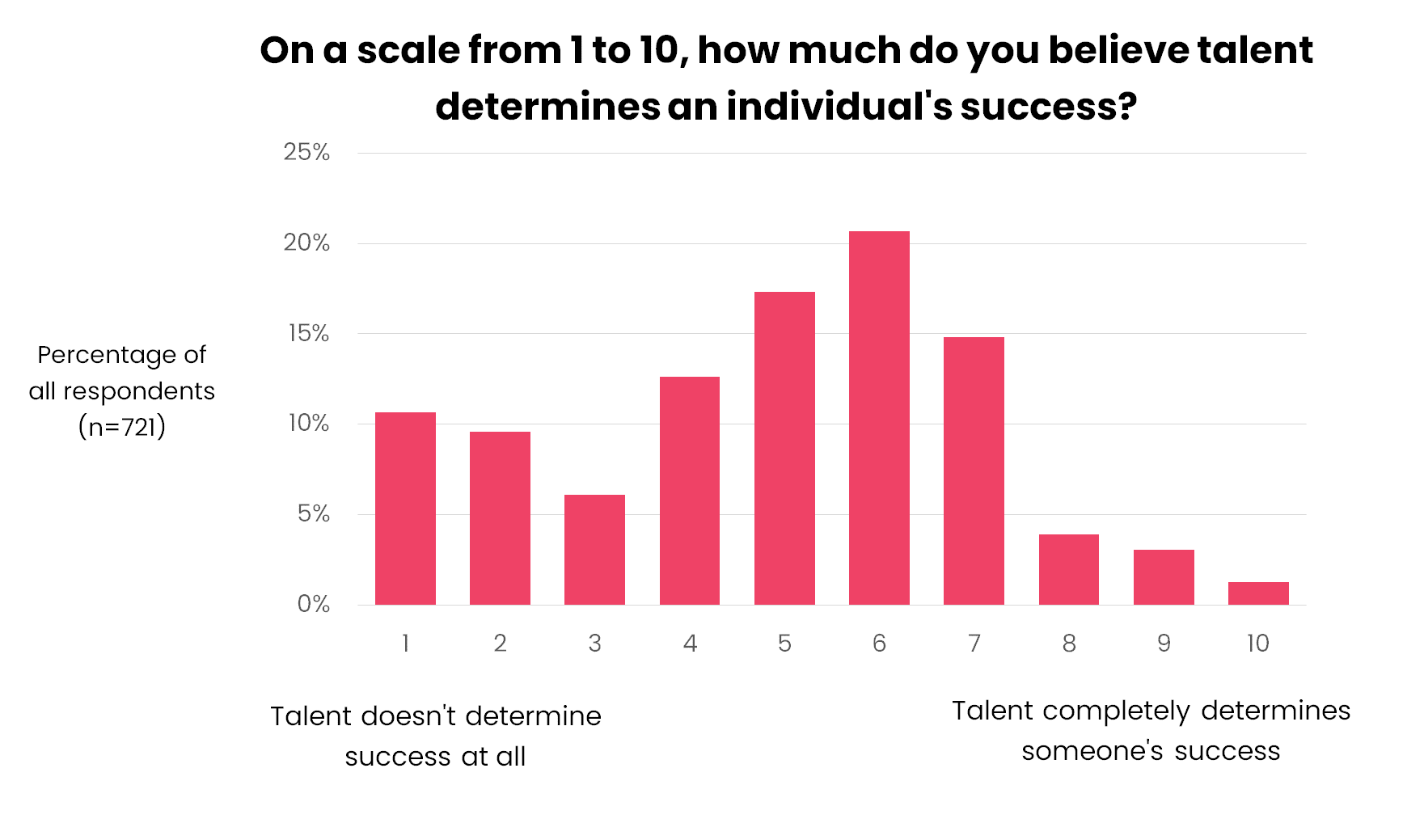
The average answer amongst all 721 respondents was 4.84. This means that, on average, people believe that about 50% of someone’s success is determined by their talent.
But upon further inspection, you can see that the answers varied a lot among the respondents.
More than 10% of our respondents answered that talent doesn’t determine success at all (they answered 1/10).
Whereas 1.25% of our respondents answered that someone’s success is completely determined by their talent (they answered 10/10).
We performed this survey to learn more about growth mindsets and fixed mindsets. How does your opinion of talent and personal growth influence your opinion and happiness?
We used the answers to this first question to gauge whether or not our respondents had a growth mindset or a fixed mindset.
Fixed mindsets and growth mindsets
A growth mindset is a belief that you are capable of developing your skills and that your capabilities are not fixed. In other words, if there’s something that you cannot do now, then a growth mindset makes you think that you can become good at it in the future, no matter how much work it takes.
Whereas a fixed mindset makes you believe that your skills are fixed and that if you’re not talented, you won’t be able to develop your skills to become proficient at something.
We set out to perform this study in order to learn more about how these mindsets influence a person’s mental health and happiness.
75% of respondents consider themselves to be talented
We asked our respondents if they felt they were talented:
- Do you consider yourself to be a talented individual?
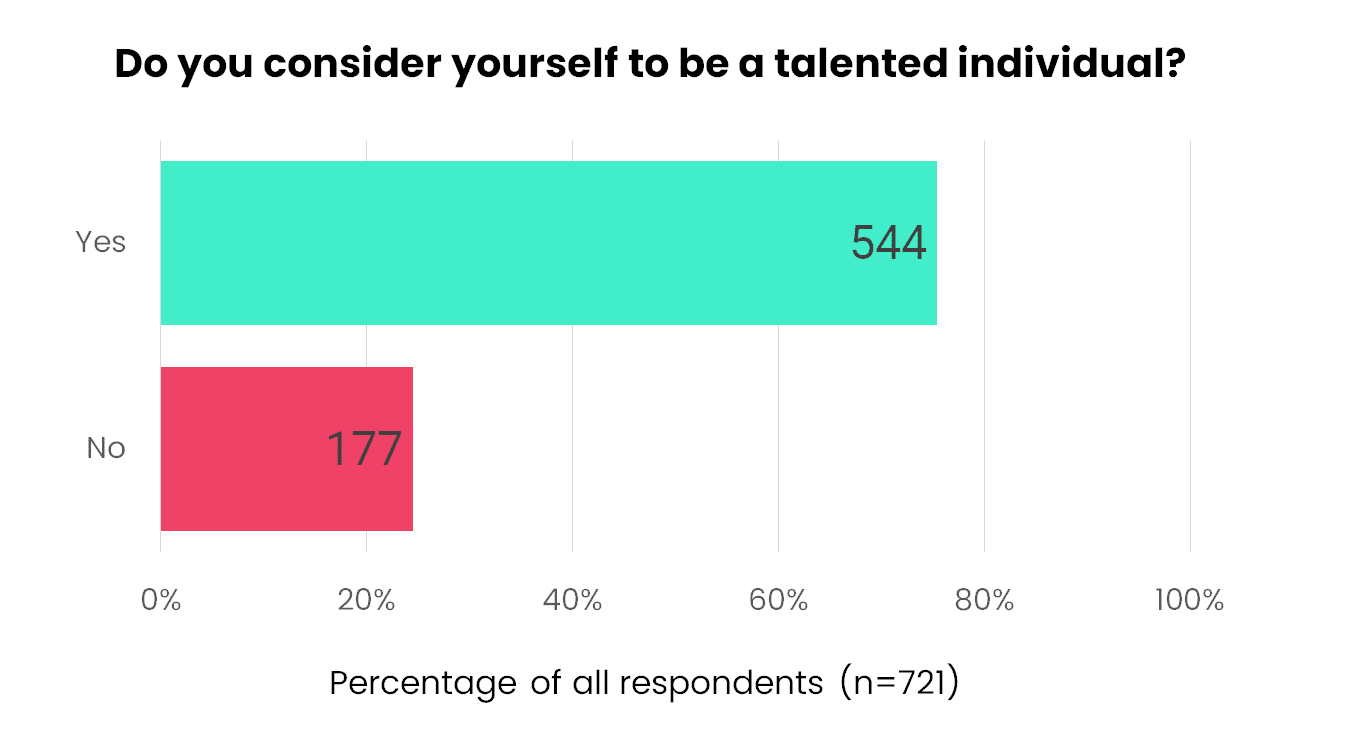
So the majority of people do consider themselves to be somewhat talented.
Only 25% of people consider themselves to be “talentless”.
People who believe themselves to be talented are more likely to think that talent is a requirement for success.
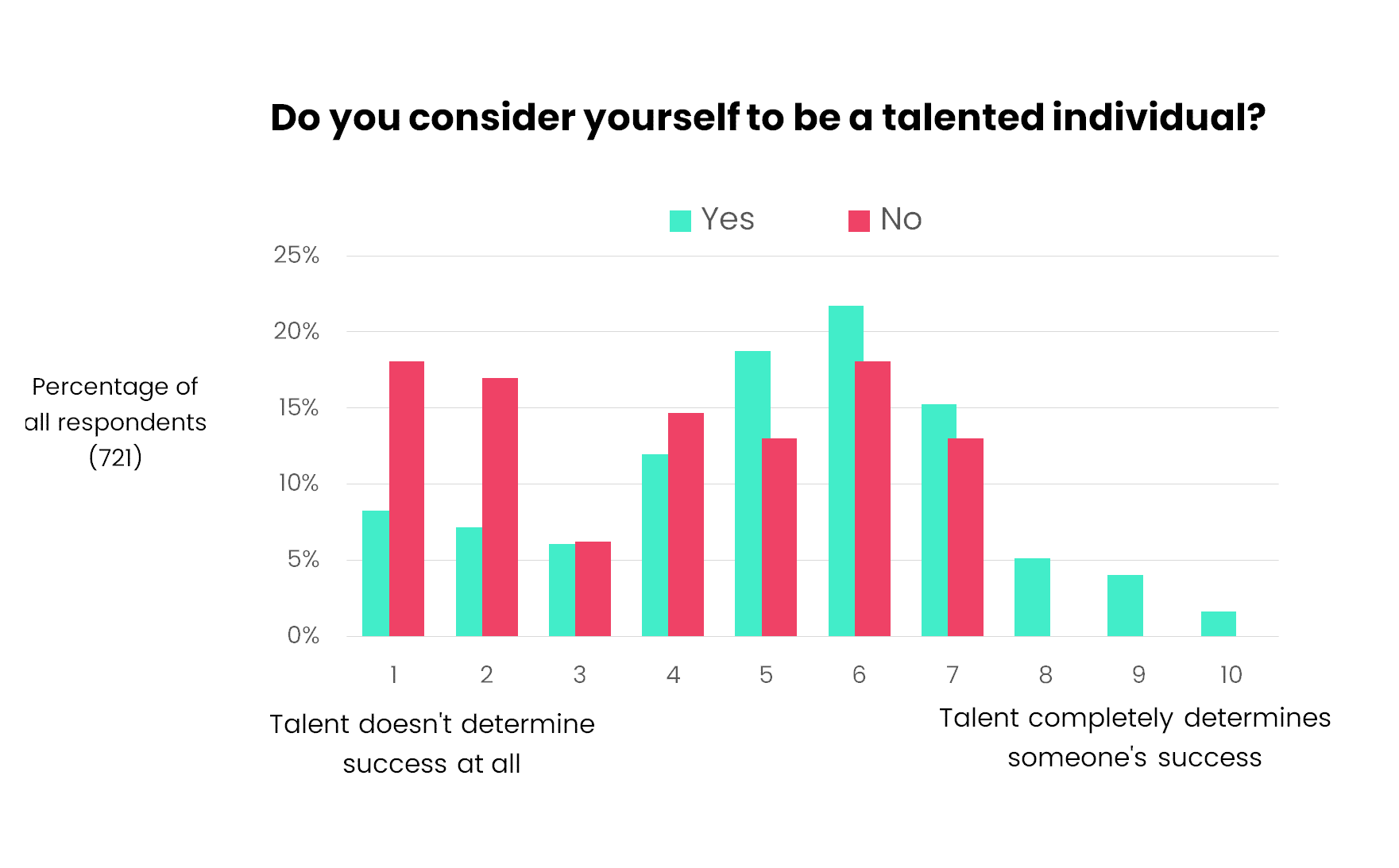
- On average, the people who don’t consider themselves talented answered 3.94 on a scale from 1 to 10.
- On the other hand, people who think they are talented answered 5.13 on average.
Interestingly, there were no respondents in our survey who considered themselves to be “talentless” while believing that someone’s talent fully determines their success.
So even though these people consider themselves to be untalented, they don’t believe that it stops them from being successful.
How happy are our respondents?
As with all of our surveys, we are ultimately looking to determine if there is a correlation between a person’s happiness and the answers they’ve given us.
So as always, we asked our respondents the following question about their happiness:
- If you look back at the last year of your life, how would you rate your happiness on a scale from 1 to 10?
This resulted in an average happiness rating of 6.18.
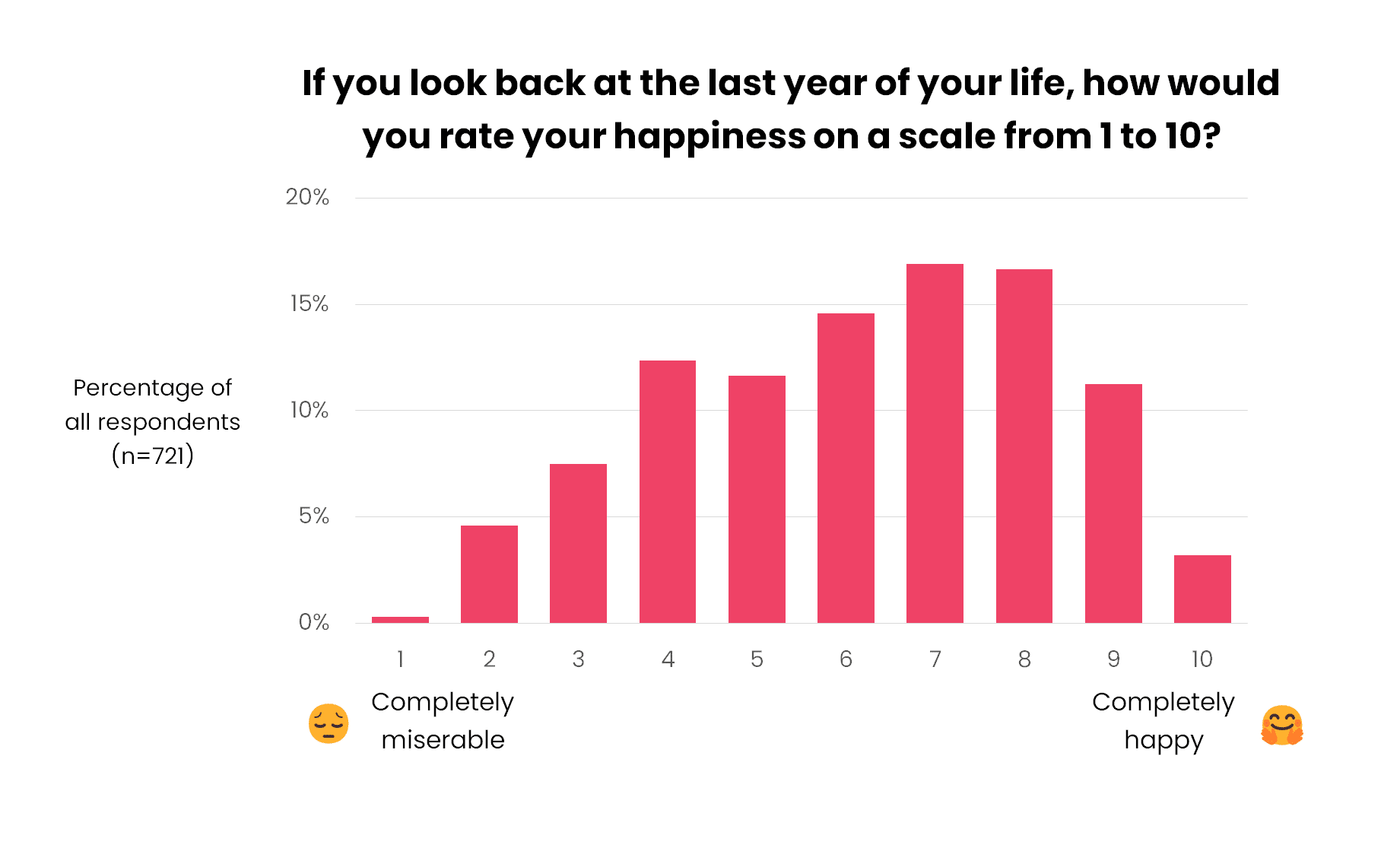
Believing in your own talent is linked to happiness
Remember, 75% of people consider themselves to be talented.
We compared the average happiness rating of those who believe in their talent with those who don’t.
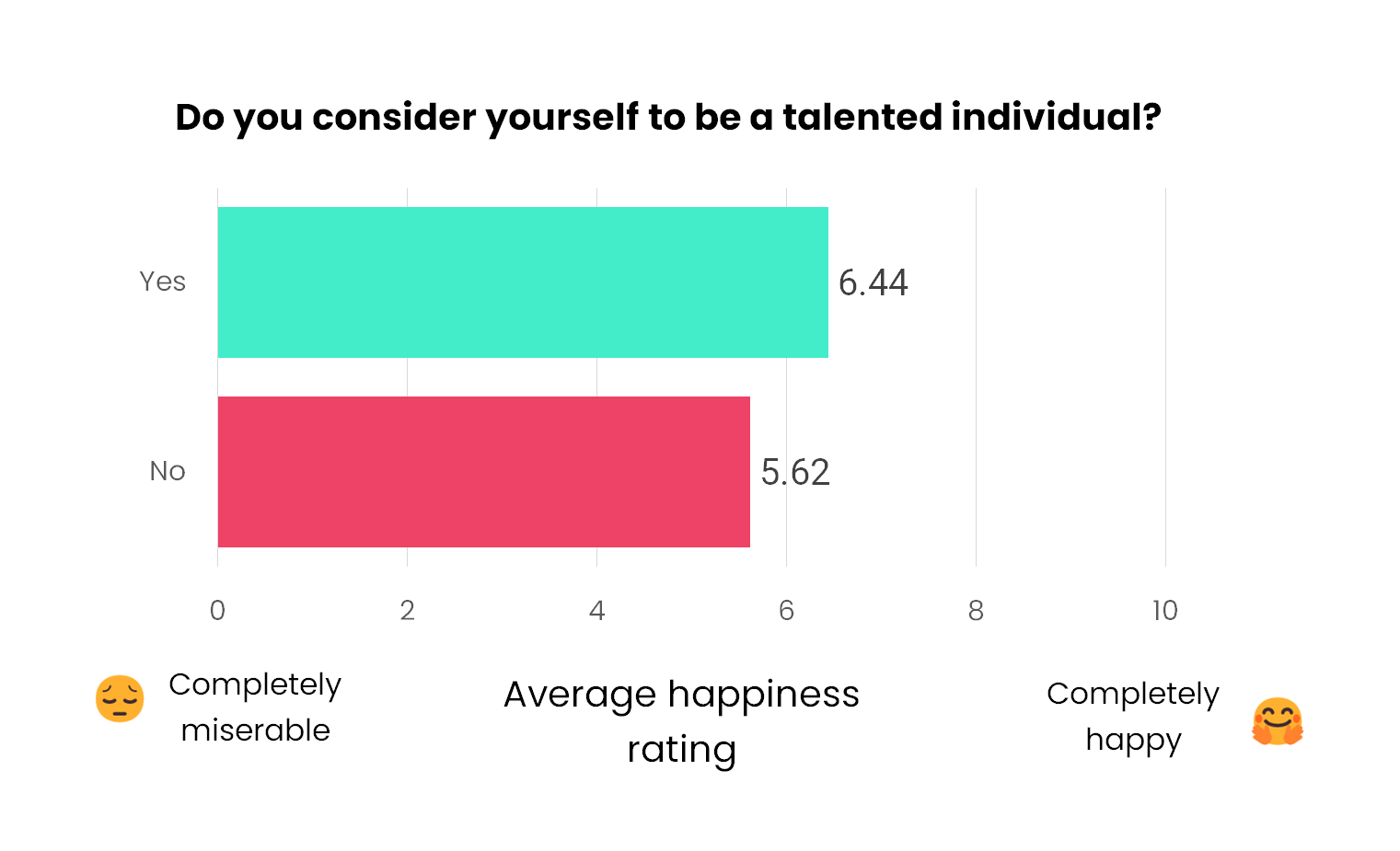
It appears that when someone believes in their own talent, they are more likely to be happy. In fact, people who believe in their talent are 15% happier than people who don’t.
So what about the belief that talent is a requirement for success?
Your opinion of talent and success is linked to your happiness
When analyzing the answers to our first question, we divided our respondents into 3 groups:
- Those who believe talent is a requirement for success.
- Those who believe talent helps but isn’t a requirement.
- Those who believe that talent has nothing to do with success.
The question we asked was:
- On a scale from 1 to 10, how much do you believe talent determines an individual’s success?
When a respondent answered 8, 9, or 10, the person was divided in the first group. When a respondent answered 1, 2, or 3, the person was divided in the last group. The remaining respondents were divided in the middle group.
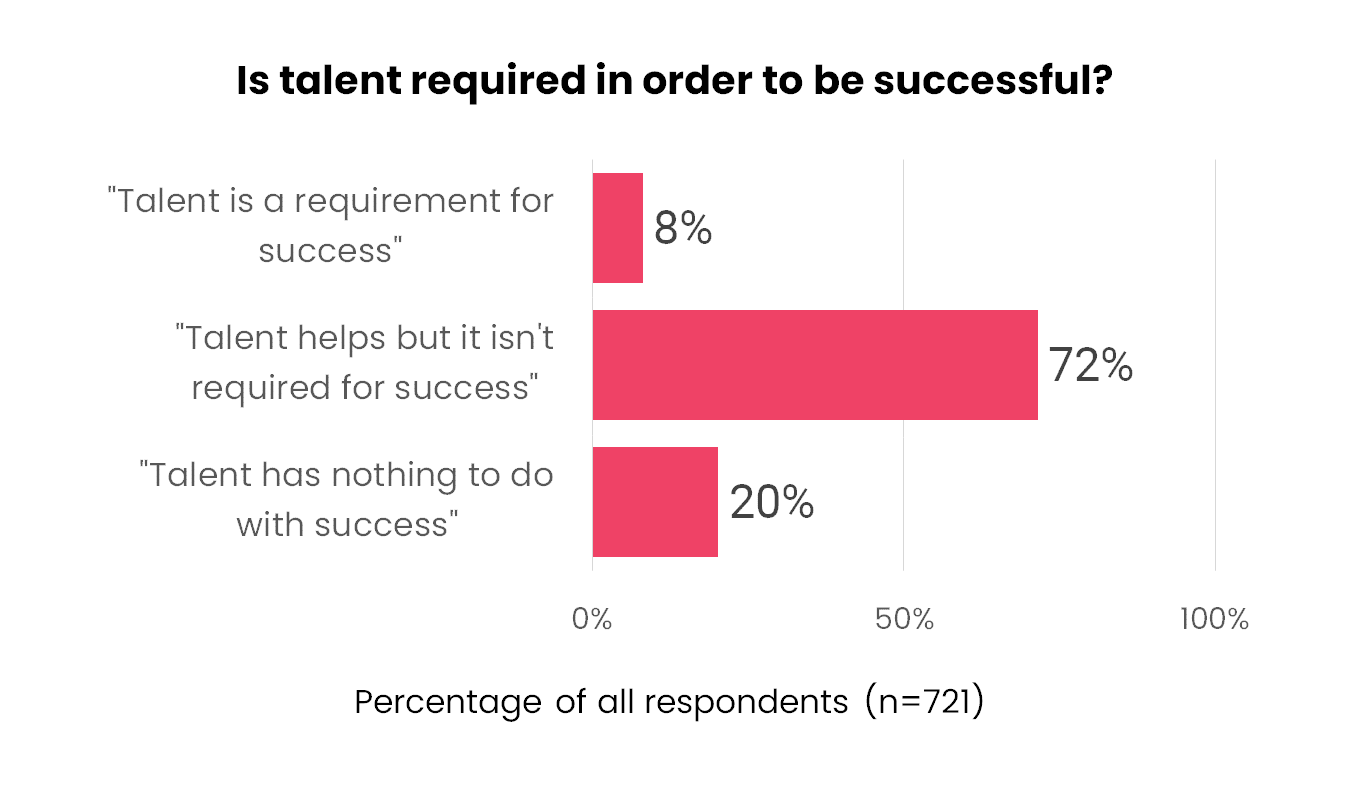
The respondents who believe that talent has nothing to do with someone’s success are the happiest.
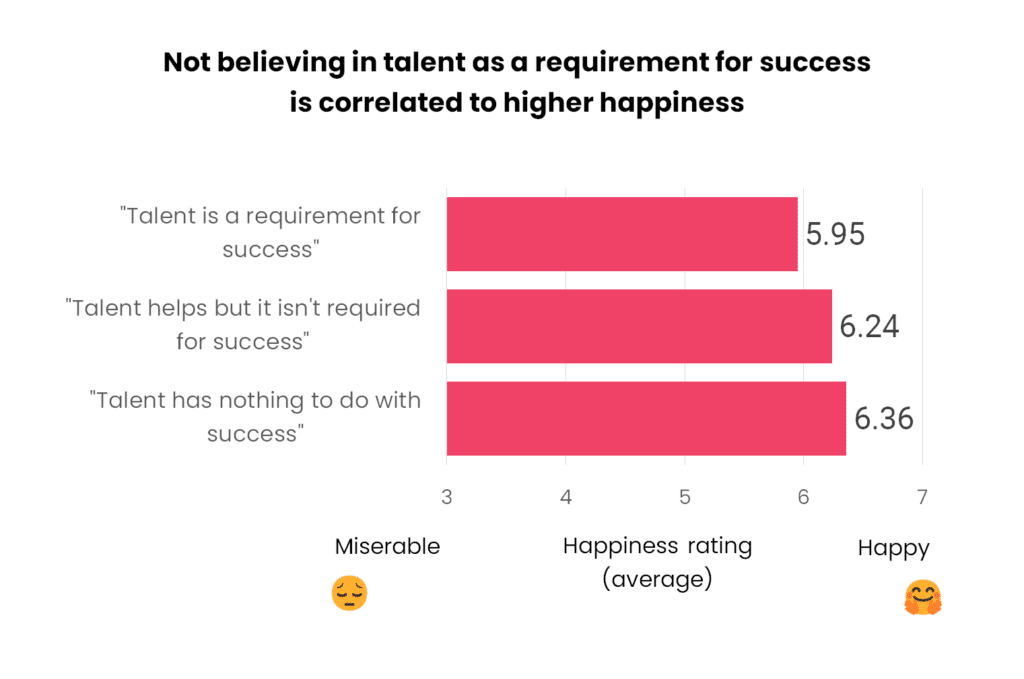
The group of respondents who believe that talent is a requirement for success are 6% less happy than the group that doesn’t believe in talent.
Methodology
Our survey consists of 721 respondents spread across the world. 68.4% of respondents were female, whereas 28.6% were female. The remainder of respondents answered either genderfluid or “Prefer not to say”.
Survey responses were collected between December 2, 2022, and July 10th, 2023.
Responses were collected by engaging with subscribers of Tracking Happiness through a series of email newsletters.
Illegitimate responses such as duplicate responses or responses with missing data were filtered from the results. The survey responses were completely anonymized. No personal names or email addresses were collected.
Fair use and redistribution
Tracking Happiness grants you permission to reuse, host, or repost the graphics and images from this article. When doing so, we ask that you kindly attribute the authors by linking to Tracking Happiness or this page.


Commentary from the team:
Hugo Huijer, Founder of Tracking Happiness
When you look at someone who’s extraordinarily skilled at something, you don’t see how many hours of work he or she put in. Millions of people around the world saw Lionel Messi win the World Cup, but they didn’t see the years of boring repetitive practice that went into building his skill.
It’s easy to believe that there is talent involved here, but is that truly the case?
Our study suggests that believing that success requires talent puts you at a disadvantage. When you believe that talent is a prerequisite for success, you are in a way giving up control and responsibility.
Talent, or “the gift” is generally considered to be something you’re born with. And if you don’t have it, and you believe that it’s a requirement for success, you are essentially limiting yourself by believing you cannot be successful.
Whether this is a result of correlation or causation remains unclear. Nonetheless, our study proves that someone’s belief in talent says something about their mindset and happiness.